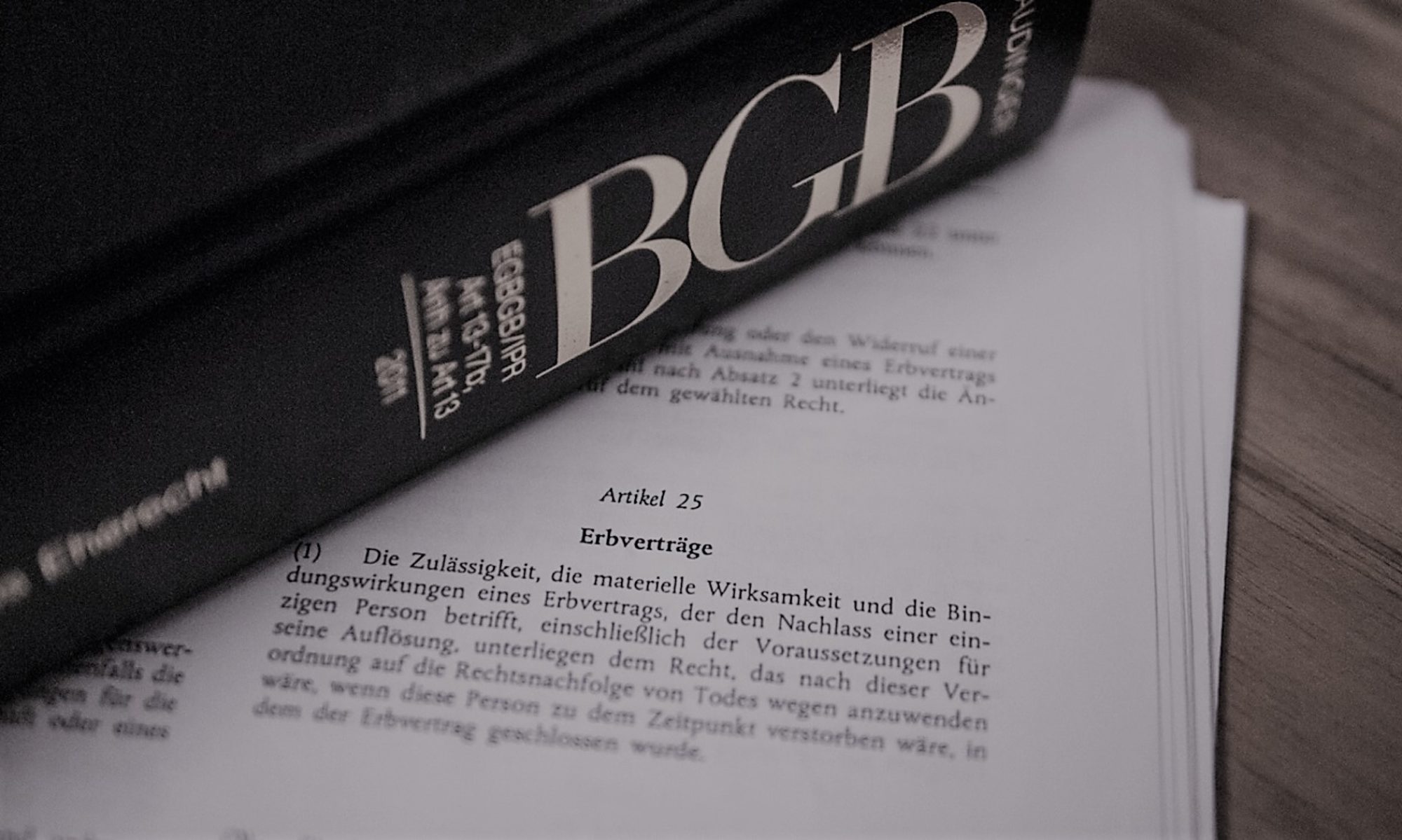If a relative or another person close to you has died, you may need a certificate of inheritance to prove the succession. This is particularly the case if the deceased did not leave a will or contract of inheritance. In this case, land registries and banks in particular will require a certificate of inheritance to prove who has become the deceased's heir. Only then will they correct the land register or grant access to the account balance.
However, you do not usually need a certificate of inheritance if the testator has left a notarized will or a notarized inheritance contract. This is because such a notarial deed proves the succession in the same way as a certificate of inheritance. If, on the other hand, the testator has only left a self-written will, this may suffice as proof vis-à-vis banks if it is unambiguous. This was decided by the Federal Supreme Court in 2016 (BGH, judgment of April 5, 2016 - file number XI RZ 440/15). However, this does not apply to the land registry! If the deceased had real estate, you always need a notarized will or a notarized inheritance contract or a certificate of inheritance to correct the land register.
Anyone who has an original will of the deceased is obliged to submit it to the probate court without delay. The local court in whose district the deceased had his last habitual residence, i.e. where he had his center of life, is responsible.
To prepare your application for an inheritance certificate, please provide us with the following information:
- Your data: Your name, your address, your date of birth, your telephone number
- Data of the deceased (testator): Name, date of birth, time and place of death, habitual residence (center of life) of the deceased at the time of death, nationality
- Data of the spouse of the deceased (testator): Name of the spouse, including former spouses (if divorced or predeceased), date of birth, date of death if applicable, address, nationality
- Marriage data (if married at death): Date of marriage, habitual residence (center of life) of the spouses at the time of marriage, nationalities at the time of marriage
- Data of the children of the deceased: Names, dates of birth, addresses
- Value of the estate at the time of death
- only if a child has predeceased > Data of the grandchildren: in addition, date of death of the child and names, dates of birth, addresses of the children of this child (i.e. the grandchildren of the deceased)
- only if there are no children and no grandchildren: Names, dates of birth, addresses of the parents
only if the parents of the deceased has predeceased: date of death of the parents as well as names, dates of birth, addresses of the siblings of the deceased
only if the siblings of the deceased predeceased: in addition, date of death of the siblings as well as names, dates of birth, addresses of the children of the predeceased sibling (nieces and nephews of the deceased)
Details of distant relatives, if applicable (please contact us about this!)
- Which assets abroad did the deceased have? In which country?
To prepare your application for an inheritance certificate, please submit the following documents to us:
- Death certificate: in the original or as a certified copy
- Wills: Originals, if already submitted copies
- Inheritance contracts: in copy
when no heirs in wills / inheritance contracts named > so legal succession has occurred: each in the original or in certified copy
- Birth and, if applicable, death certificates:
- the children
- if children predeceased: of the respective grandchildren
- only if the testator died without children/grandchildren: the other next of kin > i.e. the parents, if they are predeceased: the siblings, insofar as they are predeceased: the nieces and nephews, possibly more distant relative
- Marriage certificate, death certificate of spouse(s) or divorce decree, if applicable
- Marriage contract, if available
If you have any questions, please do not hesitate to contact us by telephone.
Notary Dr. Jens Heinig and team
What can I do if I cannot identify the heirs?
- Make inquiries: Start with the available information about the deceased and their family. Check documents such as the will, birth and marriage certificates and other personal documents to find clues to possible heirs.
- Genealogical research: If the direct heirs are not obvious, you can use genealogical research services or professionals to determine the family connections and find the potential heirs.
- Legal advice: If the search for heirs is complex, it may be advisable to consult a lawyer who specializes in inheritance matters.
- Missing persons reports: Publish missing persons or wanted ads in local newspapers, online platforms or on social media to reach potential heirs, especially if you have limited information about their whereabouts.
- Official support: In Germany, the probate court or registry office can help you to identify heirs. The probate court responsible for your inheritance matter is always the probate court where the deceased was last resident.
- Apply for a death certificate: You can have a death certificate issued on the basis of the death register kept at the relevant registry office. The death certificate is issued by the registry office in whose district the person actually died.

